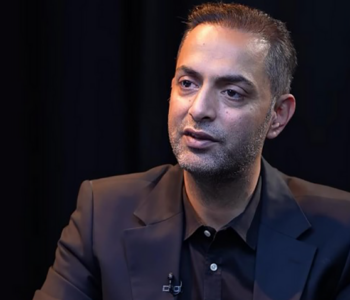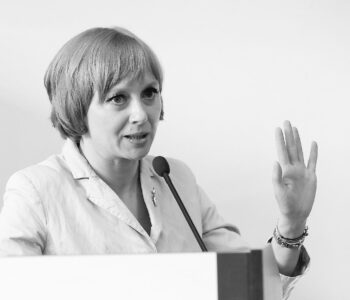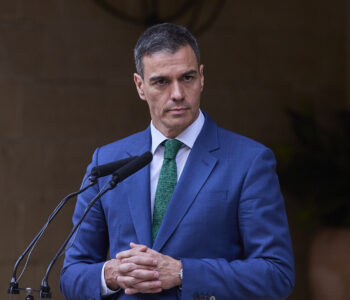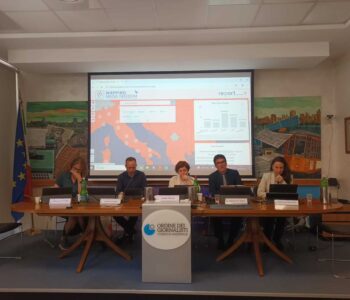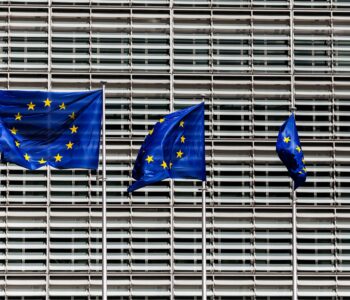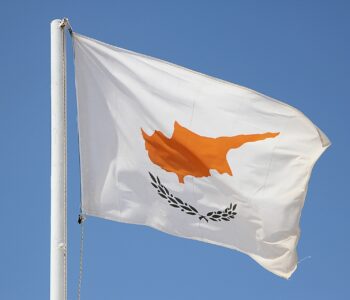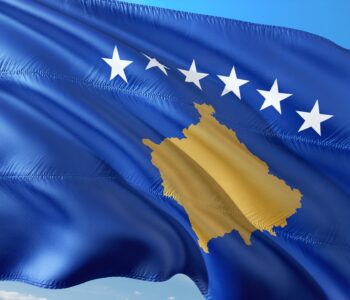The release of the fifth annual rule of law report, the last one during the Commission’s current term, provides a critical opportunity to evaluate press freedom and democratic governance across EU Member States.
We warmly welcome the fact that the media situation in the candidate countries will progressively become part of the report. We hope that the inclusion of Albania, Montenegro, North Macedonia, and Serbia – four countries that the MFRR is closely monitoring – in this year’s publication will support and hold these enlargement countries accountable in their democratic progress.
Alarmingly but not unexpectedly, the latest rule of law report testifies to the severe decline in press freedom and media pluralism that Europe is experiencing. MFRR partners continue to support the rule of law report as a valuable tool, recognizing its vital role of empowering Member State governments to promote and enforce international standards. But as media and journalists confront escalating threats, it is vital that the Commission’s assessment translates into concrete, bold and firm actions to protect media freedom and independent journalism.
Our coalition therefore calls for a poignant response from the Commission in terms of accountability. The MFRR analysis of the report highlights the following action points:
A critical need for systematic enforcement
While some countries have taken steps to improve journalists’ safety and working environments, supported by recently-adopted initiatives like the European Media Freedom Act and the anti-SLAPP directive, the report takes into account the ongoing and, in some cases, worsening issues that the MFRR has been consistently denouncing and that demand immediate attention. In Slovakia, for instance, the return of Robert Fico to government was accompanied by increasing verbal attacks on the press, a pattern that has only escalated following the Prime Minister’s assassination attempt. At the same time, cyber attacks against independent media are becoming more and more prominent, particularly in Hungary, while Italy saw a notable increase in documented legal threats.
We regret that a comprehensive assessment of the implementation of these new laws and directives is missing in the recommendations, as this is essential for effectively turning policy into reality. The European Commission notes that 32% of its previous recommendations have not been acted upon by Member States, and in certain areas the situation for journalists even further deteriorated. Hungary, for instance, has regretfully made no progress in implementing any of the recommendations laid down by the Commission last year, while media freedom in both Slovakia and Italy is further eroding. Therefore, a systematic approach or dedicated unit within DG JUST for monitoring and enforcement appears as an urgent necessity.
Shortcomings in actionable recommendations
The MFRR finds the report is still lacking actionable recommendations and concrete follow-up mechanisms. The inclusion of detailed country-specific assessments is a non-negligeable positive step, but we advocate for more intersectional analyses and in-depth human rights reviews. For instance, there is still no indication of a specific mechanism for reporting violations to the Commission, or supporting civil society actors facing restrictions in their work to uphold media freedom.
Prioritise journalist safety
We are pleased that the MFRR’s monitoring results have been acknowledged and referenced in the report. However, we regret that the alarming trend of physical and digital harassment and assaults on journalists and media workers, which remains high, has not been given more prominence.
Statements from affected individuals highlight the significant psychological impact of these incidents, creating a chilling effect on reporting crucial issues. While such cases are addressed in individual country chapters and the report notes a disturbing trend of distrust and hostility towards journalists, an overview of these trends at a transnational level is missing.
Our coalition is concerned that some conclusions appear somewhat complacent, such as the passing references to a drop in physical assaults on journalists following the lifting of COVID-19 restrictions or the mention of national action plans intended to counter such assaults. We therefore recommend placing a stronger emphasis on journalists’ safety as a category of analysis in the 2025 rule of law report.
Political compromises risk eroding the report’s goals
Troublingly, some media reports have suggested that the rule of law’s initial drafts were more critical but that political considerations softened the final text. These reports, together with delays in publication, raise questions about the Commission’s credibility and commitment to transparency and urgency in addressing rule of law issues, and could undermine the report’s impact.
Key findings: media governance, ownership transparency, assaults and legal threats
On 15 January 2024, MFRR consortium partners Free Press Unlimited (FPU), International Press Institute (IPI) and the Osservatorio Balcani Caucaso Transeuropa (OBCT) filed detailed submissions to the rule of law report on the topic of media freedom and pluralism in Hungary, Greece, Italy, Netherlands and the Czech Republic.
Regarding the 31 analysed countries’ situation, we appreciate the European Commission publication’s attention to our contributions and for acknowledging that:
Independent governance of public service media is at risk in many countries, where the broadcasters are not sufficiently protected against political interference. Including through its recent mission to Rome, the MFRR coalition has been raising awareness on how Italian public broadcaster RAI has become the latest protagonist of ongoing media capture by Meloni’s government. Slovakia is another blatant case of concern for both the MFRR and the Commission, in which no progress on enhancing the editorial independence of public media has been made.
Transparency of media ownership should also be enhanced across Europe to prevent conflicts of interest. It is worth noting the Commission’s concern regarding France about the lack of progress on this topic, which has also been linked to coordinated disinformation campaigns, particularly ahead of elections.
State advertising allocation is still not fair and transparent everywhere, prompting an additional risk of undue influence on media outlets. The MFRR has previously underscored how in Romania, some political parties have exponentially increased their financing of private media for political advertising. We have also brought to the Commission’s attention that the channelling of state resources to pro-government media continues to prevent a level playing field in Hungary.
Journalists’ protections from threats and violence, ensuring their ability to work freely, are not enough. Malta, Greece, Italy, and Slovakia in particular have made insufficient progress towards guaranteeing the safety of journalists, both physical and against abusive lawsuits. Concerning Greece, the report noted the increase in penalties for defamation despite its decriminalisation in the country’s new Penal Code, and our advocacy work on the lawsuit brought against journalists that reported on the spyware case. Generally, online abuse and online threats against journalists, specifically female journalists, remain a pressing issue.
Democratic backsliding is happening in Hungary and other countries, highlighting the pressing need for follow-up by the Commission with Member States in strengthening their commitment to the rule of law. About Italy, the EU Commission report speaks explicitly of a risk of a tangible restriction on the right of citizens to be informed and journalists to be able to do so. The Malta chapter media section mentions “no progress” has been made more often than “some progress”, making it clear that the country has not comprehensively improved the situation for journalists since Daphne Caruana Galizia’s assassination. Only two recommendations from the Public Inquiry Report have been implemented, with the white paper still not being published, and the government’s proposed media legislation currently frozen in the Maltese Parliament.
The EU and its members must reinforce democracy by protecting media
The 2024 rule of law report shows how, even in countries with strong democratic traditions, press freedom is not an acquis and repeated violations risk escalating into a systemic crisis. At a time when media freedom principles are increasingly deteriorating across Europe, it is more necessary than ever for the rule of law report to be critical, specific, and linked to enforcement tools.
Our coalition stresses the need for robust measures from the EU to uphold press freedom and pluralism. The members of the MFRR stress the following urgent needs:
- Above all, journalist safety from physical and legal threats must be prioritized. To do so, we recommend to include safety and digital safety of journalists as a separate category in future rule of law reports.
- In light of widespread political influence on public service media, lack of transparency on media ownership and State advertising, we advocate for the development of a mechanism allowing the EU to challenge legislation not compliant with European standards.
- We encourage the Commission to give more actionable recommendations to Member States, including a specific mechanism for reporting violations in future reports, as well as for supporting civil society stakeholders facing obstacles in their work to uphold media freedom across Europe.
It is imperative that both national governments and the EU take a proactive stance in monitoring violations and addressing the highlighted gaps urgently.
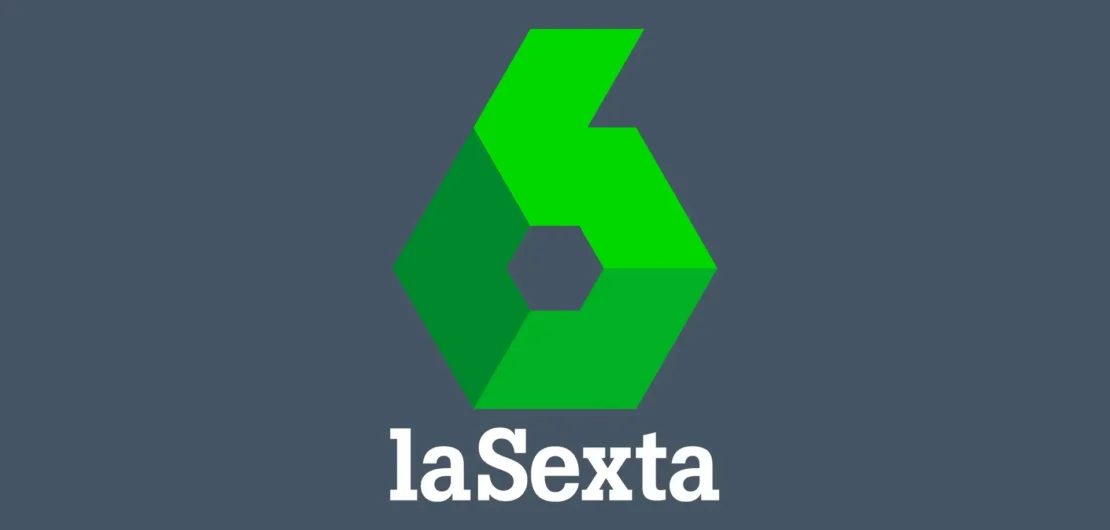 Library
Library

